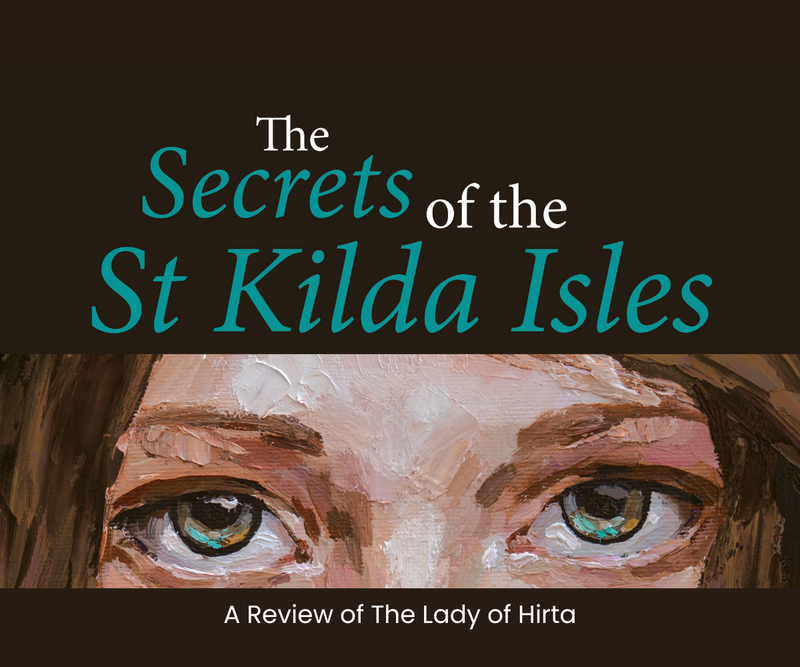The Secrets of the St Kilda Isles
Review of The Lady of Hirta

Review of The Lady of Hirta
This review is part of our ongoing series of in-house reviews, showcasing how passionate we are about the books we publish.
In The Lady of Hirta, W.C. Mackenzie crafts a richly woven tapestry of intrigue, betrayal and the relentless pursuit of truth set against the windswept backdrop of the St Kilda archipelago. The novel transports readers to 1732, where Lady Rachel Grange, unjustly imprisoned for thirteen years, grapples with the consequences of her attempts to unveil her husband's secret Jacobite connections.
Mackenzie’s portrayal of Lady Grange is both sympathetic and complex. Her initial act of defiance – aimed at liberating herself from a loveless marriage – backfires spectacularly, leading to her isolation on Hirta, the largest island in the archipelago. The depth of her character is beautifully illuminated through her reflections on love, loss and resilience, making her plight resonate with modern sensibilities.
The narrative shifts to Reverend Ferchard Ross, a determined minister whose quest for the truth about Lady Grange's secrets sets off a chain of events that intertwine their fates. Mackenzie skillfully navigates the Reverend’s motivations and moral dilemmas, drawing readers into a world where the lines between right and wrong blur amidst political machinations and personal desires. His journey from the desolate shores of St Kilda to the bustling streets of London is fraught with tension, as he uncovers a web of deception that threatens to engulf him.
Mackenzie’s writing is vivid and atmospheric, capturing the haunting beauty of the Scottish islands and the oppressive weight of the societal expectations that bind his characters. The tension between power and passion is palpable, and the author deftly explores the complexities of loyalty, love, and the lengths one will go to protect their own.
The novel is a reflection on the human condition, the consequences of choices made in desperation, and the quest for redemption. As the Reverend delves deeper into Lady Grange's past, readers are left questioning the nature of truth and whether it is worth the cost of one's peace.
In conclusion, The Lady of Hirta is a gripping read that combines historical intrigue with rich character development. W.C. Mackenzie has crafted a tale that lingers in the mind long after the final page is turned, reminding us that the past often holds more power over the present than we care to admit. Highly recommended for fans of historical fiction and those intrigued by the shadows of Scotland's past.